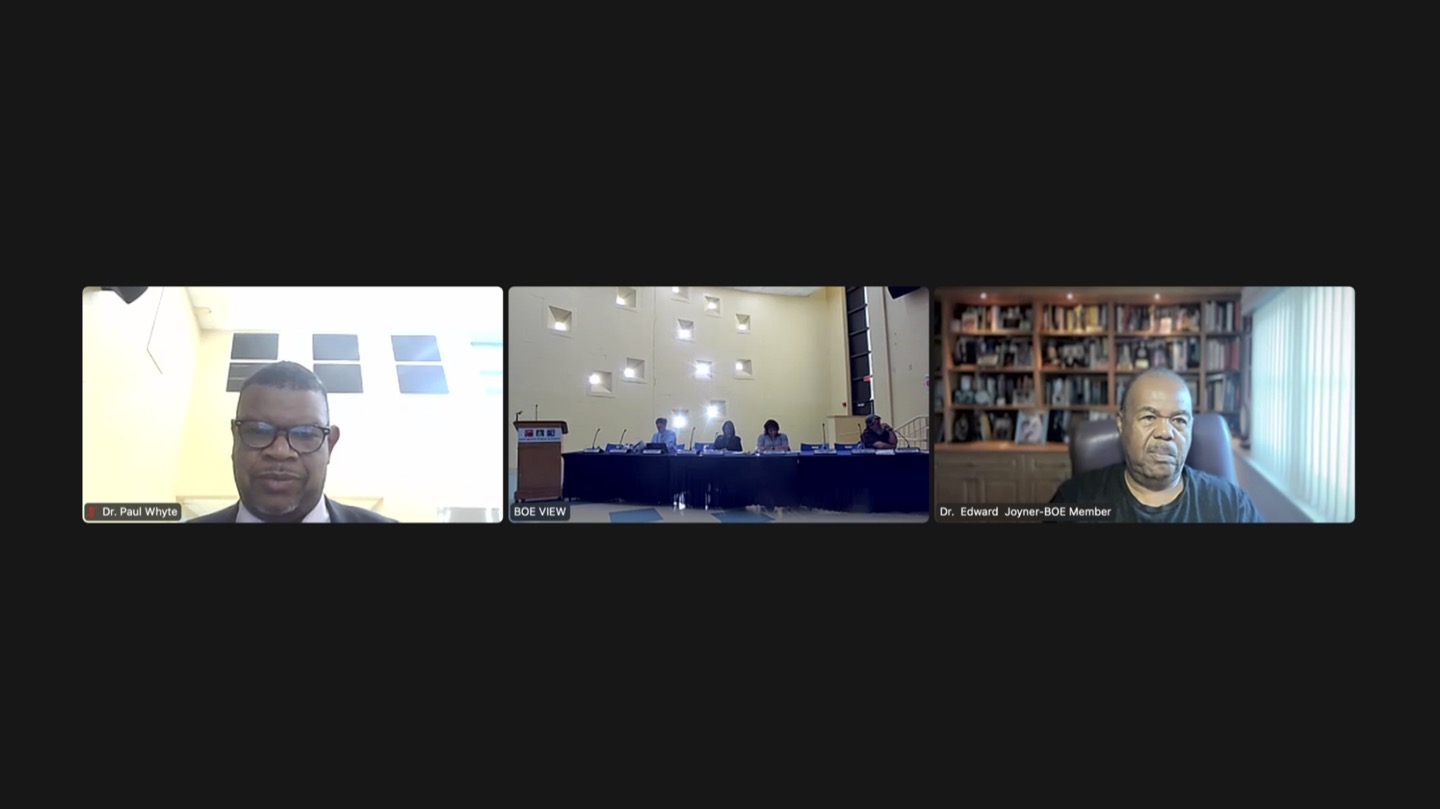
Iman Suheimat, Contributing Photographer
Superintendent Madeline Negrón proposed a $12-million increase to Mayor Justin Elicker’s city budget in order to fund facility improvements, particularly for sanitation facilities and ongoing efforts to curb vandalism.
Monday night’s meeting was held in Ross Woodward Magnet School New Haven, and also on a Zoom webinar. The meeting covered the needs of the district’s schools, from methods of improving students’ learning, to fostering inclusivity and community engagement through educational activities, such as a recent local math competition. The student Board of Education representatives also presented their reports, which highlighted a call for facility upgrades.
The student Board representatives, John Carlos Musser and Harmony Cruz-Bustamante, who both attend Wilbur Cross High School, delivered a report to the Board detailing the state of school facilities that are in need of improvement. They argued in favor of Negrón’s proposed budget, and emphasized the importance of maintaining learning environments over fiscal constraints.
“We acknowledge it is very difficult to manage the expenses of a city like New Haven, but students shouldn’t be on the platter,” Cruz-Bustamante said.
Musser then detailed conversations he has had with students regarding the lack of accessible restrooms in their schools. He reported that one of the schools had only one boys’ bathroom available in the entire school, and in another case, only one bathroom accessible that was located in the school office for the entire school to use.
“I find [this] really ridiculous. It really shows the desperate situation that our schools are in for clean and functional facilities, and it cuts a lot into the education as well” Musser said.
Musser added that such conditions both hinder students’ comfort and cut into valuable learning time, fostering an environment of frustration rather than education.
Board response and initiatives
Board Vice President Matt Wilcox noted that discussion and advocacy for better restrooms had already begun within the Board’s finance and communications committee. Wilcox committed to prioritizing the issue, indicating a readiness to seek necessary funding and address the restroom crisis.
“It is a priority of the students from what we heard [at the committee meetings]. It is a priority of the staff,” Wilcox said. “We need to get at the reasons for the issues there and figure out ways to solve them, and if it is a lack of funding, then we are going to need to find the funds to do it. It is a basic, basic thing.”
Following Wilcox’s comment, board member Edward Joyner suggested the formation of a “School Beautification Committee,” involving students in the upkeep and maintenance of their schools. This initiative, he discussed, would also aim to combat vandalism, a significant contributor to the deterioration of school facilities.
In response to Joyner’s suggestion, Cruz-Bustamante noted that vandalism was also a common topic that was brought up in the council meeting. They discussed the importance of a balanced approach that goes beyond punitive measures regarding the response to vandalism in New Haven schools.
Rather than seeking traditional punishments for vandalism, Cruz-Bustamante explained how the student representatives are working on pursuing holistic strategies that involve the entire school community in fostering a respectful and unified environment.
“It is a tough discussion because there are a couple of students who are like, ‘Let’s just expel and suspend them,’ which we are hesitant about, because that is an easy answer, and it hasn’t deterred anyone so far,” Cruz-Bustamante said.
The suggested solutions Cruz-Bustamante spoke about included collaborations with students and teachers toward restorative justice programs, and collaborating with psychiatrists from Yale University to create an extensive program focused on transformative and restorative justice.
There are 57 schools and programs in New Haven, serving 19,150 students.







